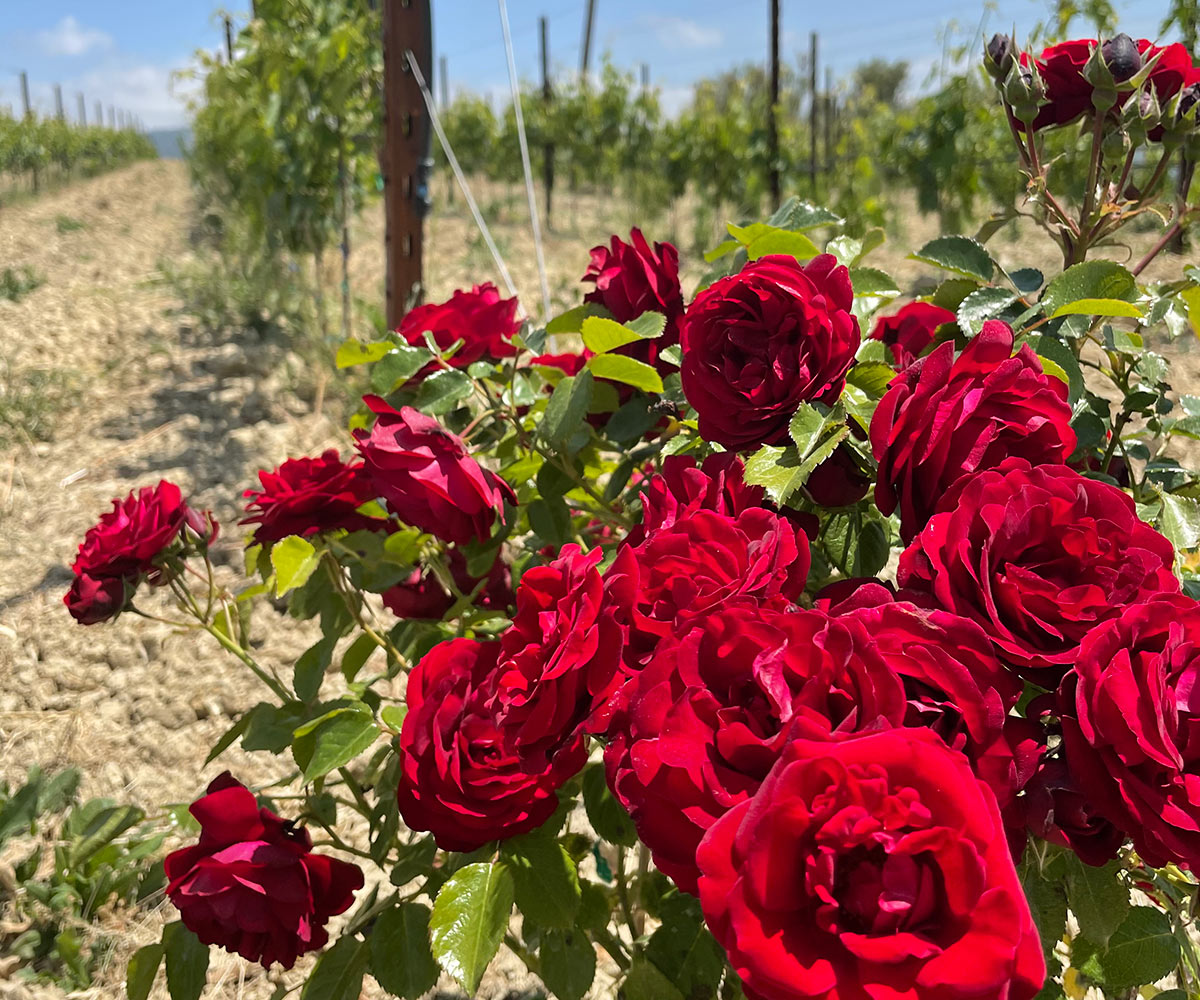For Uma Casanatura, roses have a dual, symbolic, and profound significance. We adorn our vineyards as our ancestors did, and, just like them, we believe in their expressive power. Roses dance among our vines, bestowing them with charm and splendor. Since ancient times, roses have been symbols of beauty and elegance, as well as love and friendship. The gift of a rose is a very powerful and meaningful gesture for the recipient.
However, at Uma Casanatura, we also know that roses are important for human relationships as much as for the vineyards. In fact, they act as natural sentinels, warning us in advance if our vines might face problems. The roses, located at the beginning of the vineyard rows, display a strong sensitivity to fungal diseases such as powdery mildew and downy mildew, which can also affect the grapevines. If the roses begin to show issues, we immediately perceive the risk to our vines and take action to protect them. Moreover, they perfectly monitor the vine's water health. A rose that is not adequately hydrated is a symptom of a grapevine with the same problem.
Roses have tremendous prophylactic properties and allow us to act promptly for the well-being of our vineyards, which have always provided us with high-quality organic grapes and wines. Finally, our roses, with their graceful and enchanting beauty, can protect the vineyards from harmful insects. We use them as spray plants, which insects prefer over the vines. This allows us to avoid pesticides that could harm the vine's health.
At Uma Casanatura, we understand the goodness and honesty of ancient practices, which give our land a lush and genuine terroir, a testament to a vision that looks optimistically towards the future of sustainable agriculture.




Leave a comment
This site is protected by hCaptcha and the hCaptcha Privacy Policy and Terms of Service apply.